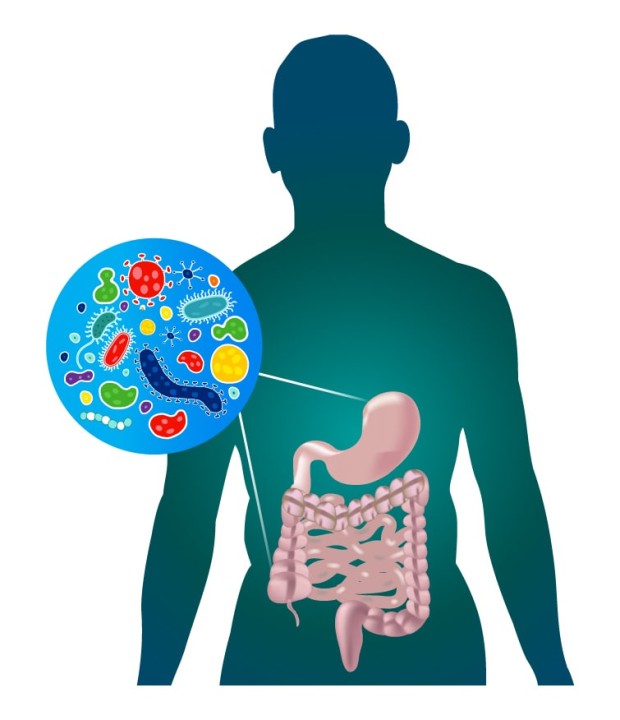Trillions of good-for-you microorganisms live in your digestive tract, helping you digest food and fend off diseases. Scientists are rigorously studying these bacteria to uncover new health benefits.
Probiotics are living, beneficial bacteria that have been shown to provide health benefits. They can help restore your gut flora after an illness or after taking antibiotics.
Introduction to Probiotics
A growing number of people suffer from digestive issues due to imbalanced gut microbes, which is known as microbial dysbiosis. A lack of helpful bacteria can cause inflammation and lead to a variety of ailments, including irritable bowel syndrome (IBS). Probiotics are live microorganisms that, when administered in adequate amounts, confer health benefits. They typically come from the lactic acid bacteria group, such as Lactococcus and Bifidobacterium.
Dairy products, especially yogurt, are a popular source of probiotics, but other foods that contain them include cheeses, sauerkraut, kimchi, kombucha, miso, pickles, and raw unfiltered apple cider vinegar. However, not all probiotics can survive stomach acid, intestinal transit and degradation by hydrolytic enzymes and bile salts.
Research has shown that many probiotic strains can enhance immune system function, improve digestion, and reduce gastrointestinal symptoms. However, more high-quality studies are needed to prove other claimed benefits.
Balancing Gut Microbiota
The human gut microbiome is a complex ecosystem containing 39 trillion bacteria and other microorganisms. Probiotics can restore and maintain a healthy gut microbiome by introducing beneficial microorganisms, suppressing pathogenic microorganisms and stimulating the immune system.
Many fermented foods contain probiotic organisms, including yogurt, kimchi (a Korean fermented cabbage dish), kombucha (fermented tea), sauerkraut, miso, pickles and raw unfiltered apple cider vinegar. However, not all of these probiotic organisms have been proven to be effective in clinical trials. The most studied probiotic organisms are lactic acid bacteria (LAB) and Escherichia coli Nissle 1917 (EcN).
While EcN can be found naturally in feces, it was originally isolated by an army surgeon in 1917 from the stool of a soldier who didn’t develop infectious diarrhea during an outbreak of Shigella infection. EcN has been shown to have several probiotic properties, including resistance to mucosal colonization by pathogenic organisms and the ability to stimulate adaptive immune responses.
Research also suggests that EcN can deliver a variety of therapeutic molecules, such as antibiotics and anti-inflammatory cytokines, to the intestinal mucosal cells. These cytokines can prompt goblet cells to secrete mucin, inhibiting pathogenic bacterial adherence.
Improving Digestive Function
Many people with digestive issues – such as abdominal pain, bloating and diarrhea – have changes in their gut bacteria. Probiotics can help bring the bacteria back to normal levels and improve digestive function.
The best probiotics are human strains that can colonize your intestines. You should also choose a product that is free of animal proteins, allergens and fillers. You can find these types of probiotics in fermented foods and supplements.
Probiotics can stimulate the growth of good bacteria in the intestine, which then boost your immune system to help fight infections and other diseases. They can also prevent bacterial overgrowth, which is often caused by antibiotics.
Some probiotics have been shown to have specific effects on the digestive tract, such as shortening the duration of rotavirus diarrhoea in children. Other probiotics have been shown to reduce bloating, abdominal pain and flatulence associated with irritable bowel syndrome (IBS). These effects are likely related to the probiotic’s ability to modulate the intestinal immune system by producing secreted factors and metabolites that affect intestinal epithelial and immune cells.
Enhancing Immune Response
Researchers have found that probiotics can stimulate the immune system to help fight off infection. The lactic acid bacteria that are often used in probiotics are known to stimulate the innate and adaptive immune responses through various mechanisms. These include increasing the permeability of the intestinal epithelium, secreting mucus, or competing with other microbes for nutrients and growth substrates [Sonnenburg and Fischbach].
For example, a study showed that Bifidobacterium longum increased blood leucocyte levels in healthy volunteers (Reference Schiffrin, Rochat and Link-Amster12). Other studies have demonstrated probiotic effects on the immune system by investigating genes expressed by intestinal microbiota in response to probiotic administration. These include genes encoding polysaccharide metabolism, methanogenic pathways for hydrogen gas production, enzymes for the detoxification of xenobiotics and other essential biological functions.
Some probiotics also stimulate mucus production in the gastrointestinal tract, which helps ward off harmful bacteria that can lead to cavities. Other studies have shown that probiotics can lower pH in the mouth, making it less favorable for plaque-forming bacteria.
Alleviating Gastrointestinal Issues
The gastrointestinal tract contains many bacteria and other microorganisms, and they are estimated to outnumber human cells by 10 to 1. It is not surprising, then, that probiotics are a promising tool for treating a variety of GI conditions.
Your microbiota is unique to you and changes based on the foods you eat, dietary supplements, medications, stress levels, and body weight. These changes can lead to digestive health issues, including inflammation, irritable bowel syndrome, and diarrhea.
Research suggests that probiotics can alleviate these gastrointestinal issues by restoring the balance of gut bacteria. Probiotics can also improve digestion by stimulating the production of enzymes and by crowding out ‘bad’ bacteria that could make you feel sick.
Probiotics have been shown to reduce the risk of antibiotic-associated diarrhea (AAD) and pouchitis (inflammation in the lining of the pouch created during surgery for ulcerative colitis). Additionally, they can help with Crohn’s disease by keeping it in remission and preventing flares.[5]
Reducing Inflammation
Inflammation is essential for human survival, but too much of it can damage the gut. It can also increase the risk of many chronic diseases. Probiotics can help reduce inflammation by increasing short-chain fatty acid production and reducing the secretion of inflammatory cytokines.
Dysbiosis is associated with gastrointestinal infections, inflammatory bowel disease, and irritable bowel syndrome (IBS). Probiotics can reestablish the gut microbiota by adding healthy bacteria to it.
A recent study found that probiotics can decrease abdominal discomfort and bloating in people with IBS. The participants who took the probiotics had less pain and bloating than those taking a placebo.
Intestinal barrier disruption is linked to low-grade inflammation, classically associated with metabolic disorders related to obesity, such as diabetes and nonalcoholic fatty liver disease [107]. Probiotics can restore intestinal barrier function and modulate the immune response by producing metabolites that stimulate macrophages into a M2-like phenotype reducing inflammatory markers including CRP, TNF-alpha, and IL-6. Moreover, they can also stimulate the production of anti-inflammatory metabolites. [108]
Supporting Mental Health
One of the most significant benefits of probiotics is their ability to positively influence our mood and mental health. Probiotics may help reduce gastrointestinal issues like constipation and bloating that are associated with depression, and boost serotonin levels in the brain to alleviate anxiety and stress.
This effect is likely a result of probiotics’ ability to decrease the production of inflammatory chemicals called cytokines, as well as their ability to improve gut-brain communication and increase conversion of tryptophan into serotonin. Several studies have shown that probiotics can provide relief from symptoms of depression, including depressed mood and fatigue.
Additionally, a small pilot study found that probiotics can help prevent some of the common side effects of antidepressant medication, which can include abdominal pain and diarrhea. This is because antibiotics can obliterate entire communities of healthy bacteria in the digestive tract, leaving a gap that can be filled by harmful microorganisms. This gap can be filled with beneficial probiotics. The study found that adding probiotics to patients’ treatment regimens can reduce these side effects, making it easier to take their medications regularly.
Conclusion
Trillions of good-for-you microorganisms reside in your digestive tract, where they help you digest food, fight off diseases and even create vitamins. These are known as probiotics, and they’re the subject of an ever-growing field of scientific research that’s tying them to all sorts of health benefits.
Gut bacteria can be impacted by many different factors, including diet, infection and antibiotics. The imbalance in these bacteria, which is called dysbiosis, can cause your body to have problems with its gastrointestinal tract, immune system and metabolic processes.
Adding probiotics to your diet can help repopulate your gut with healthy bacteria, especially after conditions that disturb the microbiome, like taking antibiotics or being sick. Probiotics have been shown to alleviate symptoms of irritable bowel syndrome, such as abdominal pain, bloating, cramping and constipation.
Some probiotics may have nonspecific effects on microbial communities, while others might exert their effects via specific mechanisms such as vitamin synthesis, gut barrier reinforcement, bile acid metabolism, enzymatic activity or immunomodulation. Those specific properties can vary between strains of the same species or taxonomic group.

